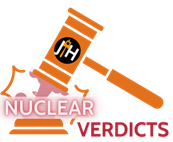MASS TORTS LITIGATION IN PHILADELPHIA COURT OF COMMON PLEAS
The Philadelphia Court of Common Pleas is the plaintiffs’ bar’s preferred jurisdiction for mass tort litigation. The court’s Complex Litigation Center, which hosts mass tort programs targeting pharmaceutical and medical device companies, is especially notorious.
PFAS
Just four days before voters went to the polls in November, the City of Philadelphia filed a lawsuit in the Philadelphia Court of Common Pleas against manufacturers of products containing trace amounts of poly- fluoroalkyl substances (“PFAS”), including 3M Co. and DuPont. The suit seeks to hold the manufacturers liable for contaminating local water sources with PFAS. The City hired Sher Edling, a notorious plaintiffs’ firm handling climate change litigation across the country, to assist with the case.
PFAS is a family of chemicals that are especially useful in suppressing fire and reducing flammability. Small amounts of PFAS chemicals are commonly found in manufacturing and consumer goods, as well as firefighting foam that was commonly used at military installations, airports and industrial sites. Although heavy doses of PFAS can be toxic to humans, the chemical is not harmful in small quantities. The EPA maintains a “heath advisory level” for the concentration of PFAS chemicals in water. The manufacturers substantially complied with the standards until this June when the EPA drastically reduced the targets to almost untraceable amounts. The lawsuit argues that the manufacturers should be held liable for exceeding the new target levels and examines the manufacturer’s conduct from as far back as the 1950s.
The City made typical product liability claims for design defect, failure to warn, and general negligence.
The City, however, also put forth expansive claims for public nuisance and trespass, a popular strategy for municipality plaintiffs in recent environmental and opioid litigation.
In response to the lawsuit, a representative for 3M Co. said that the company “acted responsibly in connection with products containing PFAS” and promised to “vigorously defend its record of environmental stewardship.”
Vena Cava Filters
Almost 1,800 claims are pending in the Complex Litigation Center alleging that Rex vena cava filters often fail and are ineffective. While the claims proceed to trial individually, they share a discovery mechanism for efficiency. In February 2022, a Pennsylvania appellate court upheld an order issued by the Philadelphia Court of Common Pleas requiring the company to provide financial records for the purpose of assessing punitive damages.
As pointed out by the defense, this decision implicates “highly private information of non-parties” that could wreak “havoc” on individuals not involved in the litigation. Among the private financial information requested was details about employees’ income and bonuses and how money was distributed. The discovery order requires the individual defendants “to disclose private financial information that far exceeds the narrow parameters” set by Pennsylvania law, which only allows “information concerning the wealth of a defendant” to be admitted. Individual plaintiffs also had not yet proven that they were entitled to punitive damages, but the order assumes that they are available.
Following the February ruling, the litigation halted as the manufacturer entered settlement negotiations with the plaintiffs. The parties completed settlement conferences in July and November, though terms of the settlement agreement were yet to be finalized as of the date of publication. The parties have, however, established a qualified settlement fund and appointed a fund administrator according to docket history.
Zantac
In 2022, the Complex Litigation Center initiated a new program for claims related to Zantac, an over-the- counter heartburn medication that was recalled by the FDA after finding that storage at high temperatures may result in an unacceptable level of an impurity in some instances over time. The program quickly caught the attention of plaintiffs’ attorneys; filing records show that 640 claims were pending in the CLC’s Zantac program as of October 15. Although a federal judge from the Southern District of Florida is already overseeing multi-district litigation for Zantac claims, many plaintiffs are opting to file Zantac claims in the Philadelphia Court of Common Pleas. They are choosing Philadelphia because it is an advantageous venue for a plaintiff to litigate in, according to the plaintiffs’ liaison counsel for the Zantac litigation, Rosemary Pinto of Feldman & Pinto.
An Administrative Judge from the Philadelphia Common Pleas initiated the Zantac program through a June order. Zantac claims began to flow into the Complex Litigation Center in July (35 claims) and exploded thereafter – plaintiffs’ lawyers filed 186 suits in August and an additional 332 in September. Full data for October was not available at the time of this report, but Zantac producers should “anticipate that the number of filings will continue to grow in the coming months,” said Zantac plaintiffs’ attorney Tracy Finken of Anapol Weiss.
New Mass Tort Programs For Herbicides
The Complex Litigation Center also initiated new mass tort programs for Roundup® (Bayer) and Paraquat (Syngenta), two of the most commonly used herbicides in the United States. Roundup® has been linked to cancer, though many scientists, including those at the EPA, have concluded otherwise. Similarly, a link between Paraquat and Parkinson’s disease has been hotly debated among scientists. Although these new programs haven’t been quite as trendy among plaintiffs’ attorneys as the Zantac program, both have seen steady growth since emerging this May: 154 claims had been filed in the first 6 months of the Paraquat pro- gram and 130 claims had been filed in the Roundup® program in the same time period. Despite the modest start, Thomas Kline, a founding partner of plaintiffs’ firm Kline & Specter, believes that the Roundup® pro- gram is “going to be the marquee program for the foreseeable future.”
Paraquat herbicide, has emerged as a top target of mass tort litigation advertising. Since the beginning of 2021, more TV ads have aired across the country soliciting claims alleging injuries caused by paraquat than mass tort ads related to any other product. More than $24 million has been spent on more than 150,000 of these ads since 2021.
A Second Wave of Reglan Litigation on the Horizon?
In 2018, Teva settled claims alleging that use of the digestion drug, Reglan, led to various illnesses. These lawsuits were centered in the Philadelphia Court of Common Pleas Complex Litigation Center, which had about 2,000 claims on its docket. Following the March 2022 publication of a journal article linking Reglan to an increased risk of stroke, a previously unknown side effect, more lawsuits may be coming.
Following this news, one plaintiffs’ attorney observed, “It is not out of the realm of possibility” that there would be a new wave of Reglan lawsuits may be on the horizon. If so, Philadelphia is likely to once again be the hotspot for Reglan litigation.
Risperdal
Risperdal, an anti-psychotic medication, has been one of the top targets of the trial bar in Pennsylvania. Despite an $800 million settlement announced by Johnson & Johnson, almost 1,000 claims were still pending in the Philadelphia Court of Common Pleas’ Complex Litigation Center as of November 2, 2022.
Asbestos Litigation
In 2021, Philadelphia remained the fourth most popular jurisdiction to file lawsuits claiming injuries from exposure to asbestos. Plaintiffs’ lawyers filed 203 asbestos lawsuits in Philadelphia in 2021. In the first half of 2022, Philadelphia dropped one spot (#5) in the jurisdiction rankings for asbestos filings, despite a 27.2% increase in lawsuits compared to the first half of 2021. In total, over 750 asbestos cases were pending in the Philadelphia Court of Common Pleas as of November 2022.
 Leadership in the Keystone State continues to turn a blind eye to the abuses occurring in the state’s civil justice system, particularly in the Philadelphia Court of Common Pleas and the Supreme Court of Pennsylvania. In perhaps the most disappointing decision in 2022, the Supreme Court of Pennsylvania eliminated the state’s venue rule for medical liability lawsuits. This decision will likely lead to a drastic increase in medical liability litigation in some of the most plaintiff-friendly courts in the state.
Leadership in the Keystone State continues to turn a blind eye to the abuses occurring in the state’s civil justice system, particularly in the Philadelphia Court of Common Pleas and the Supreme Court of Pennsylvania. In perhaps the most disappointing decision in 2022, the Supreme Court of Pennsylvania eliminated the state’s venue rule for medical liability lawsuits. This decision will likely lead to a drastic increase in medical liability litigation in some of the most plaintiff-friendly courts in the state.



 In May 2022, the Supreme Court of Pennsylvania
In May 2022, the Supreme Court of Pennsylvania 

